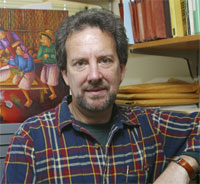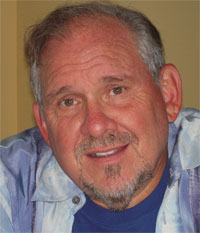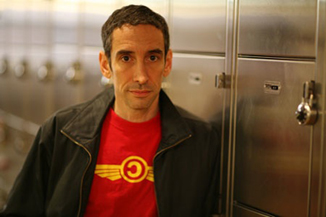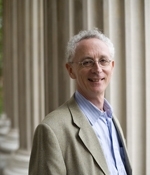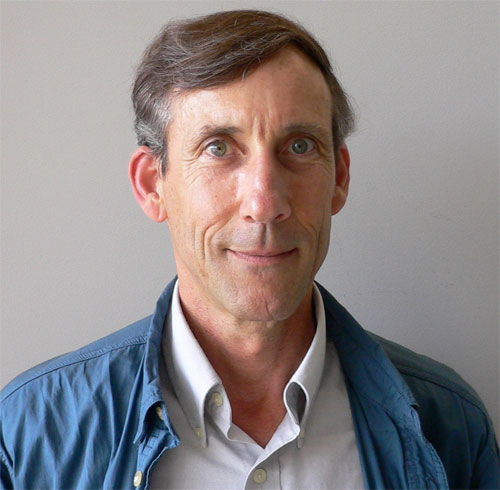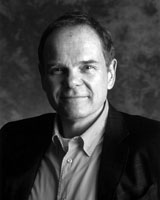
...For close to two decades Cass Seltzer has all but owned the psychology of religion, but only because nobody else wanted it, not anyone with the smarts to do academic research in psychology and the ambition to follow through. It had been impossible to get grants, and the prestigious journals would return his manuscripts without sending them out for peer review. The undergraduates crowded his courses, but that counted, if anything, as a strike against him in his department. The graduate students stayed away in droves. The sexy psychological research was all in neural network modeling and cognitive neuroscience. The mind is a neural computer and the folks with the algorithms ruled.
But now things had happened — fundamental and fundamentalist things — and religion as a phenomenon is on everybody's mind. And among all the changes that religion's new towering profile has wrought in the world, which are mostly alarming if not downright terrifying, is the transformation in the life of one Cass Seltzer.
First had come the book, which he had entitled The Varieties of Religious Illusion, a nod to both William James's The Varieties of Religious Experience and to Sigmund Freud's The Future of An Illusion. The book had brought Cass an indecent amount of attention. Time Magazine, in a cover story on the so-called new atheists, had ended by dubbing him "the atheist with a soul." When the magazine came out, Cass's literary agent, Sy Auerbach, called to congratulate him. "Now that you're famous, even I might have to take you seriously. ...
Introduction
By John Brockman
"What is this stuff, you ask one another," says the narrator in Rebecca Newberger Goldstein's new novel 36 Arguments for the Existence of God: A Work of Fiction, "and how can it still be kicking around, given how much we already know?"

We have very short memories.
It was in April 2006 that President George W. Bush, Senate Majority Leader Bill Frist, and Senator John McCain all announced their support of teaching Intelligent Design in public schools. This assault on science and on the separation of church and state was a mobilizing moment for the Edge community which responded to this initiative with book of essays by 16 eminent scientists entitled Intelligent Thought, excerpts from which appeared on Edge.
At the time, three and a half years ago, no one was using the phrase "the new atheists". In fact, in early 2006 only Sam Harris's book The End of Faith (2004), and Daniel C. Dennett's Breaking the Spell(February, 2006) had been published. It was in response to the highly organized and well-financed campaign by the religious right that led champions of rational thinking such as Jerry Coyne, Richard Dawkins, Daniel C. Dennett, Sam Harris, Christopher Hitchens, A.C. Grayling, and P.Z. Myers to mount an unrelenting campaign against the purveyors of superstition, supernaturalism, ignorance ... and their apologists (the self-proclaimed "moderates", or to use more apt terms, the "accommodationists", or the "faitheists").
The term "the new atheists" came into play in early 2007, followed by "I am an atheist, but". This is hardly the lingo of the far right. In fact, you don't have to leave the pages of Edge to read variations on this meme from some very distinguished and respected scientists. But what some appear to be saying is "I am an atheist but... other people, not as smart as I am, require religion (a) to get through the day, (b) to create sustainable societies, (c) to have moral values, etc. Others, intellectually lazy, afraid, or unable to invent their own personal narratives, simply wear their parents' old ideas like a hand-me-down suit, defaulting to the maudlin sentimentality that is the soundtrack to the American mind.
Now, Rebecca Newberger Goldstein, known to Edge readers as a philosopher who has interesting things to say about Gödel and Spinoza, among others, enters into this conversation, taking on these and wider themes, and pushing the envelope by crossing over into the realm of fiction.
Goldstein isn't the first novelist to appear on Edge, nor the first to discuss religion. In October 1989, the novelist Ken Kesey came to New York spoke to The Reality Club. "As I've often told Ginsberg," he began, "you can't blame the President for the state of the country, it's always the poets' fault. You can't expect politicians to come up with a vision, they don't have it in them. Poets have to come up with the vision and they have to turn it on so it sparks and catches hold."
It's in this spirit that Edge presents a brief excerpt from the first chapter, and the nonfiction appendix from 36 Arguments for the Existence of God: A Work of Fiction by Rebecca Newberger Goldstein (21,250 words).
— JB
REBECCA NEWBERGER GOLDSTEIN is a philosopher, a novelist, and Edge contributor. She is the author of the nonfiction works Betraying Spinoza: The Renegade Jew Who Gave Us Modernity, and Incompleteness: The Proof and Paradox of Kurt Gödel. Her other novels include The Mind-Body Problem and Properties of Light: A Novel of Love, Betrayal, and Quantum Physics, and 36 Arguments for the Existence of God: A Work of Fiction.
Rebecca Newberger Goldstein's Edge Bio page

